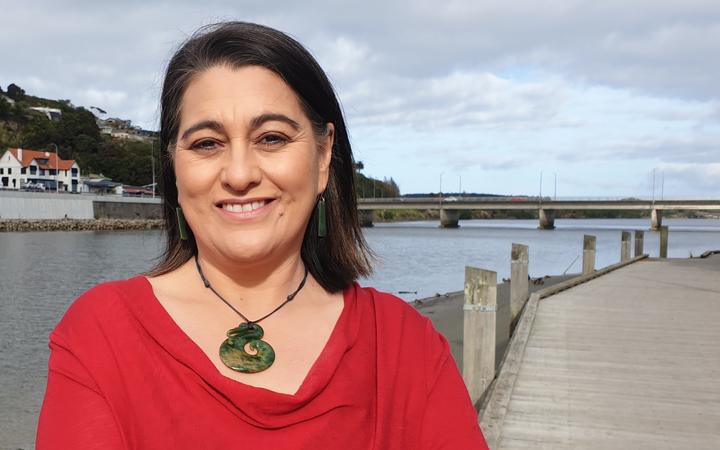An iwi-owned research institute in Whanganui has received $5 million in health research funding for a five-year programme to drive better health outcomes for Māori.

The research will give evidence for communities to take to the Crown and say this is what should be done, Amohia Boulton says. Photo: LDR / Awa FM
The grant to Whakauae Research Services is part of the latest round of Health Research Council (HRC) funding announced today by Health Minister Andrew Little, and is the first time the programme fund has been awarded to an iwi-owned health research centre.
Whakauae Research Centre was established by Rangitīkei iwi Ngāti Hauiti in 2005. Director Amohia Boulton said that the five-year Kaupapa Māori research programme is critical to effecting the changes needed to improve health outcomes for Māori.
“What this programme attempts to do is, through a series of research projects, put Māori voice front and centre in decisions around health and healthcare, and that’s really critical at the moment given the changes that are afoot in the health system,” Boulton said.
“The government themselves have said they want more Māori voice, they want authentic partnership, they want rangatiratanga to be demonstrated within a new health system.
“This research will give evidence for our communities to take to the Crown and say this is what you need to be doing, this is how you need to be working with us so that our health and wellbeing is at least at the level of non-Māori, if not better.”
With the latest round of funding, the government is backing research into some of the country’s biggest health concerns, including cancer, diabetes and heart disease.
The funding covers 31 general project grants ($36.64m), five rangahau hauora Māori grants ($5.91m), five Pacific project grants ($5.79m), and four programme grants ($19.99m).
“The research will investigate issues ranging from vaccine hesitancy through to improving genetic diagnoses for tamariki across Aotearoa,” Little said.
Health inequities must be addressed – Little
Whakauae is one of a number of successful applicants for projects led by Māori and Pacific researchers and driven by Kaupapa Māori and Pacific research methodologies to help reduce health inequities for Māori and Pacific peoples.
“As I said earlier this year when I announced major reform of the health system, Māori and Pacific peoples are twice as likely to die young from conditions that could have been treated, and being Māori or Pacific even determines what sort of treatment you get,” Little said.
“Our plan for dealing with this includes looking at why that is happening and finding effective ways to deal with it.
“The projects funded this year show New Zealand developing innovative approaches that will have an immediate effect on the health system, and that it has an agile and capable research sector that can respond to community needs and emerging health threats,” Little said.
The HRC is responsible for managing the government’s investment in health research. It offers funding for projects, Pacific projects and programmes through an annual contestable funding round, investing around $120m a year in grants of up to $5m for each successful proposal.
The Whanganui research will take a collaborative approach with multi-disciplinary teams from university, iwi and community working together to achieve four key goals, each with its own research project.
The projects will:
- establish new knowledge on leadership models needed for iwi/Māori to make lasting advances in health equity
- build knowledge on healthy home environments
- establish concepts of good primary care practice, specifically increasing Māori access to health care in the pre-diagnosis phase of cancer
- and deliver research findings to policy-makers, decision-makers and whānau.
In the cancer care research, Whakauae will partner with a Whanganui-based regional health research collaborative led by Whanganui GP Dr John McMenamin.
The Whakauae research programme is called Kia Puawai Ake Ngā Uri Whakatupu – Flourishing Future Generations. The name was chosen by Ngāti Hauiti.
“This programme seeks to fundamentally challenge the way the health system works – or doesn’t work – for Māori,” Boulton said.
“We must develop and lead our own solutions if we are to realise the aspirations of our tūpuna to flourish as Māori. This means building and testing our knowledge and what that looks like in the current context.”
Boulton said it was the Whanganui research centre’s first application for an HRC programme grant. She said Whakauae is one of only two programme grants awarded to Māori research centres outside of a university system – the other some years ago was to another Whanganui-based research institute, Te Atawhai o te Ao.
Whakauae will expand its research team and there will be immediate opportunities for post-graduate studies, Boulton said.

Local Democracy Reporting is a public interest news service supported by RNZ, the News Publishers’ Association and NZ On Air.